#lattimore's translation is the most accurate one
Note
apologies if you've answered this before, but is there a translation of homer you'd particularly recommend?
If you haven't read Homer before, Fagles is a great choice because his translations strike a good balance between preserving the lyrical elements of Homer's poetry (i.e. more-or-less sticking to the five-beat lines, keeping in the repetitions) and remaining accessible to a modern reader (i.e. sometimes he'll evoke Homer’s line-ending alliterations by using end-rhymes). The other nice thing about the Fagles translations is the introduction and annotations by the great Bernard Knox, whose commentary illuminates the text by providing a lot of important context and background info. If you find Fagles too rich for your blood, Lombardo's translations are also really good to cut your teeth on—his more contemporary language is a little easier to parse.
#lattimore's translation is the most accurate one#but i find people are more amenable to it after they've already fallen in love#i hesitate to recommend wilson's translations to a first time reader#not because i don't love them#but because i think they're even better when you can appreciate what makes them so different from previous translations#also don't be afraid to mix and match translations—i.e. if you like fagles' iliad but you're not vibing with his odyssey try lombardo's#anonymous#assbox#classics mutuals feel free to chime in
60 notes
·
View notes
Note
Ok I need help. You've posted about antigone and the odyssey. What versions/translations can I read?
OK!!!!
The Odyssey has a number of big name translations. My personal favourite is the Fitzgerald translation, it's I think the most poetic and I love his imagery. The Lattimore is the most often used in schools because it's a very accurate translation, but I find it far too dry. The Fagles is also common but I've heard it introduces like sexist terms into the translation which weren't there originally. The Wilson translation made waves by being the first female translation if you're interested in that, it uses more sparse language, trying to create more of a modern approach. Personally not my thing but very good. I would recommend tbh finding like the opening first twenty lines or so online for various translations - I did that and it convinced me to get the Fitzgerald, it just felt richer and more flowing than the others but obviously poetry is a very personal thing so you might prefer others still! There are dozens of Odyssey translations but these are the most talked about I think, I will say if you go for a different one avoid prose translations, they're a little weird and lose the fact that it is actually a poem.
For Antigone...I really don't know. I first read the Peter Meineck and Paul Woodruff translation and obviously I fell in love with the story but it's a bit clunky I think at times. I did love it though obviously. There's Fagles translation of the Theban plays as well which might be good but I haven't read it. Honestly I'm of the opinion Antigone should be stumbled across as though magic and change your life silently, so I care less about the translation, but I'm sure there are some excellent ones out there. I'm sorry I can't help more on this one!
I hope you enjoy them! Antigone is actually the third in the Theban Plays trilogy, although it was written first and quite a while before the other two btw. And the Odyssey means so much to me!!! I hope you like it!
10 notes
·
View notes
Note
ok ok ok so you're getting a Homeric Epics ask because there's too much for a comment. Firstly translations - the Wilson translations are critically acclaimed, they're known for being a lot more straightforward language than many other translations, I haven't read them properly but from what I see they're fine, they're good. I personally enjoy things being a bit more elaborate, I love a bit of purple poetry, so I go for the Fitzgerald translation which a. avoids some of the random misogyny that like the Fagles has. Lattimore is the last of the big three traditional translations, it's SO BORING it's like word for word accurate it's the crib translation but it is DULL. Go for the Wilson for sure if you want but be aware it's not like, an inherently better translation always? It can be your favourite but I feel like people talk about it like it has greater value because it was written by a woman sometimes. But I'm absolutely not downplaying it, it is good.
Iliad vs Odyssey! You don't need to have read the Iliad to read the Odyssey. The Odyssey is the one with the fun stories, it's a bit dramatic it's a bit fun it has monsters. It's honestly surprisingly light? I read most of it on like a five hour train ride (fitzgerald translation) in August and it had been a long while and I was surprised again that it wasn't as much of a slog as it could be. It's the one with the action and the random episodes, it's a great time. Is it as well written as the Iliad? probably not but it's very beloved to me.
The Iliad I actually studied properly so in my mind it requires more understanding of historical and cultural context to be interesting but idk if that's actually true. I do love it, I do, I defo think it's a harder read, it has more depth and complexity but also a lot of it is people stabbing other people and while there's so much going on thematically and character-wise sometimes the actual plot can get a little samey (JUST LIKE WAR BABEY IT'S ABOUT THE HORRORS OF WAR). I would absolutely say read it (minus book 2) but if you're a little worried about the style being too dense honestly i might suggest start with the Odyssey and my best friend Odysseus first.
I hope you do end up reading them, they can be hard work but they're genuinely such good stories and such good writing!
this is the kind of commitment i expect when i ask people to pursuade me to read their fave books!! to be honest i’m a little ashamed i haven’t read these books yet, i think i’m gonna look for the wilson translations next time i’m at the store! i was more interested in her versions because i’ve heard she is a more accurate translation, and doesn’t include some misogynistic tones that the other previous translators have, and that she gives more agency to the women? i’m not sure, i have enjoyed the snippets i’ve read! i think i’ll also look for the fitzgerald translations if i can find them second hand!!!!!
#thank you so so much#im wanting to get into more ~dense~ literature next year (someone help me find don quioxote and count of monte cristo)#answered asks#mutuals tag#gracie tag
5 notes
·
View notes
Text
A Guide to the Best Editions and Translations of Some Classic Literature
TWENTY THOUSAND LEAGUES UNDER THE SEA BY JULES VERNE

IMPORTANT: Whatever you do, DO NOT BUY the edition translated by Lewis Mercier. In fact, NEVER buy any translation of ANYTHING by Lewis Mercier. Mercier’s translation is unfortunately the most “standard” and popular translation. This translation is said to have removed about 20-25% of the original novel, and also removes a lot of Verne’s original meaning. In short, it was a botched translation that somehow became very popular and accessible up until the 1970′s, but always still check for before buying. Barnes and Noble still has his translation lying around for sale.
If the name of the translator isn’t on the cover or back cover of the book, you can check the first few pages where they write the publication history. It might be in fine print.
Frankly, any translation that is NOT by Lewis Mercier is good.
The pictures I have attached here are of the edition I bought published by The Franklin Library. It was translated by Mendor T. Brunetti. It also includes the original illustrations, which is cool.
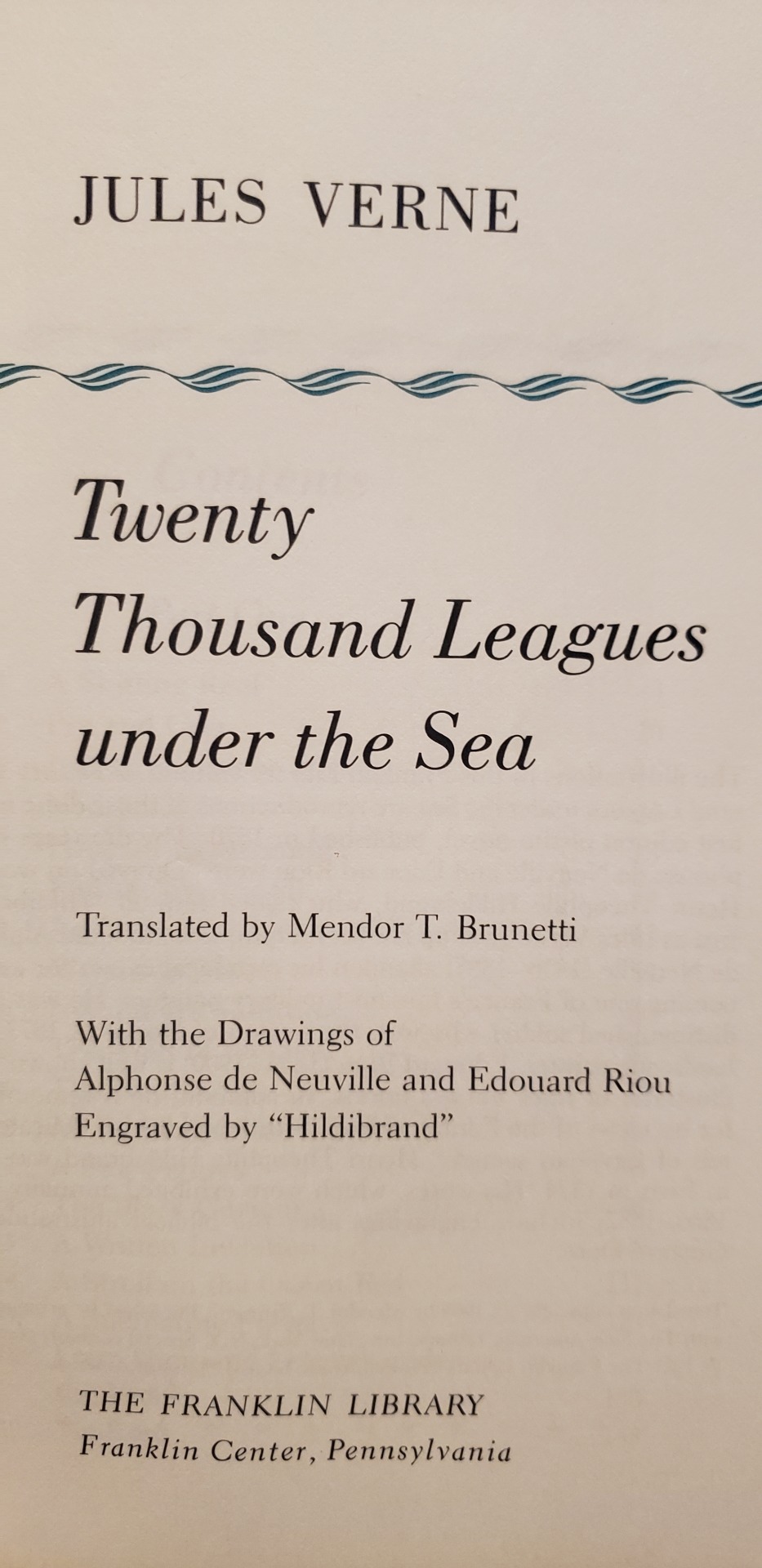
THE HOLY BIBLE

Oof. This one can get really dicey. But I’ll explain it the best I can.
There have been dozens of translations of the Bible, if not hundreds. Not everyone uses the same one, especially evangelical groups like Pentecostals and Jehovah’s Witnesses. These more radical groups have willingly altered the Bible to further their views. So, a Bible that a Jehovah’s Witness holds is not the same Bible that a Roman Catholic priest holds.
The King James Bible (KJV, or King James Version) has often been considered the most popular version of The Bible throughout modern history. Many of the Bible’s most memorable quotes are directly taken from the King James Bible. It’s considered dignified, poetic, and beautiful. It’s also wrong. So very, very wrong. It’s quite possibly the worst translation of the Bible ever made. I grew up in Catholic school and even there we never once touched the King James Bible. The problems with the King James Bible include certain “theological biases” (i.e. implying Jesus appeared somewhere when he didn’t) and all-around bad translations (i.e. it says there were unicorns but the real meaning is supposed to say “horned beasts”) (see ReligionForBreakfast). The other annoying thing about the King James Bible is that quotation marks are not used. This can be very confusing for readers as it becomes unclear who is speaking.
If you’re curious to see how an exact literal translation of the Bible into English goes, check out the Interlinear Bible. It has the original Hebrew and Greek text with the English words underneath (or besides). You will quickly realize just how complicated translating the Bible is, as Hebrew does not have many words. The English prose in the Interlinear Bible therefore can read like gibberish.
If you want to read the Bible with as close to the original intent and meaning as possible while also being readable, then go for the New American Standard Bible. It can still be a bit difficult to read though. The current popular edition is the New Revised Standard Version. This newer edition from 1989 is considered the most neutral of all translations, as it does not hold any denominational bias. The translators even placed gender-neutral words, such as “people” instead of “mankind”.
FRANKENSTEIN BY MARY SHELLEY
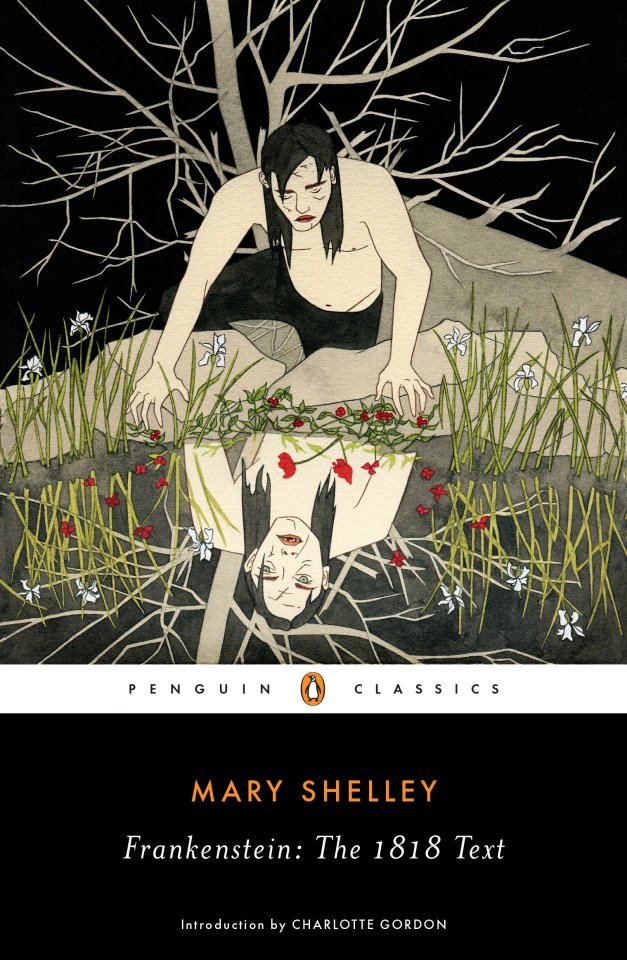
The original 1818 text by Mary Shelley has been given more spotlight as of late. The text that we are most commonly familiar with from 1831 had the story toned down because of course it would be scandalous for a woman to write about such things at the time. Mary Shelley had suffered critical outrage and pressure for editorial changes from her husband Percy for her original vision. For the 1831 edition, she was forced to edit the novel so that Dr. Frankenstein would be a more moral character, whereas the original Dr. Frankenstein in the 1818 text did not go through much moralizing.
Penguin Books recently released an affordable edition of the 1818 text.
THE THREE MUSKETEERS BY ALEXANDRE DUMAS
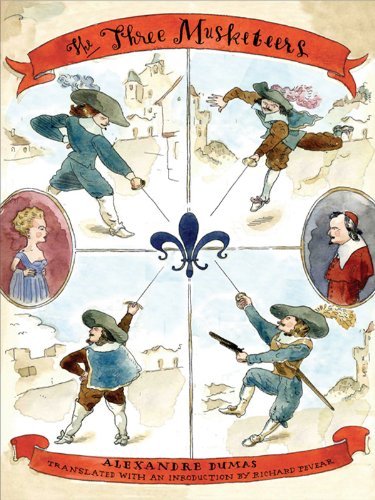
There are numerous translations but I want to highlight the one I read by Richard Pevear. This made the story very readable while also remaining faithful to the story. Pevear didn’t censor Dumas’s original meanings at all like previous translations did for their time. I thoroughly enjoyed his translation and was lucky enough to get the hardcover of his first edition back in the day. My mom completely surprised me by buying that book for me, and it ended up happening to be the best translation. The best thing about Pevear’s edition is that it includes footnotes for archaic terms. The original hardcover of Pevear’s edition is difficult to find by now, but his translation has been re-released by other publishers. As of a few years ago, a new translation by Lawrence Ellsworth has been released. I have not read that one but have heard good things. The publishers of the Ellsworth translation have also been republishing ALL of the Musketeer stories to provide a series of consistent editions, which has always been rare for the Musketeer saga.
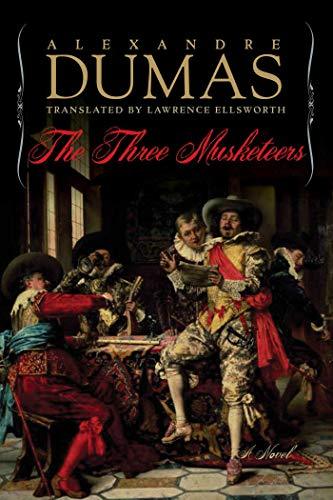
HOMER’S ODYSSEY, ILIAD, and VIRGIL’S AENEID
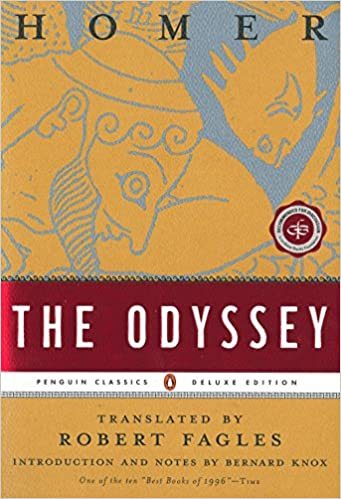
First off, read these epics in verse form. I cannot believe there are editions out that written in prose form. I’m sorry but that should be illegal. I grew up reading Robert Fagles’ translation, which is pretty damn good and is the standard in schools. However, also look for Richmond Lattimore’s translation. Lattimore translated The Odyssey and The Iliad in the original rhythm that Homer intended. Fagles wrote in freeform for the sake of being easier to read. Both translations retain the original meaning, so it’s up to you really what you prefer. As for The Aeneid (Lattimore only translated Greek classics), go with Fagles.
DON QUIXOTE BY MIGUEL DE CERVANTES

Read the translation by Edith Grossman. That’s all I can say. I devoured that book in days. Grossman did to Don Quixote what Pevear did to The Three Musketeers. It’s just that good and readable.
Ormsby is the second-best, being the most scholarly of all translations. The translation is the most accurate but the humor can be dry and doesn’t pack the same punch as Cervantes probably intended.
The translations to avoid like the plague are by Motteux, Smollett, and John Phillips.
SHERLOCK HOLMES BY SIR ARTHUR CONAN DOYLE
Surely, most people reading this have a copy of the Sherlock Holmes tales in one form or another. But which is the best?
Every text out there is the same no matter the publication, but I prefer to read the way it was originally formatted with all the illustrations. The automatic assumption people might have is that all the original Sherlock Holmes stories were published in The Strand Magazine. This wasn’t the case. There were several stories published in other magazines at the time, such as A Study in Scarlet and The Sign of Four, to name a few. Therefore, if you find an edition boasting to have “all The Strand illustrations” it probably only has the stories that were published in The Strand Magazine. More confusing yet, some editions do say “All the Strand illustrations” but also include A Study in Scarlet and The Sign of Four.
Keep in mind this magical number: 60
Sir Arthur Conan Doyle wrote a total of 56 short stories and 4 novels with Sherlock Holmes. If the copy you are holding does not add up to 60 stories, don’t bother. You might get a copy that comes in two or three volumes.
#onreading#literature#translations#language#languages#mary shelley#bible#Christianity#catholicism#religion#don quixote#jules verne#twenty thousand leagues under the sea#alexandre dumas#frankenstein#the three musketeers#homer#odyssey#iliad#virgil#homer's odyssey#homer's iliad#books#book#classics#classic#classic literature#sherlock holmes#sir arthur conan doyle#reading
38 notes
·
View notes
Text
Rating various Iliad translations
This will be long, as we have a lot to get through. I hope you enjoy!
The first one we’ll be working with is by George Chapman, from 1611. First impression is all the weird spellings of words. “Goddesse,” “imposd,” “soules,” “losd.” Classic 1600s. But aside from that, not a fan, 3/10, confusing.
Next we have Mr. Thomas Hobbes, from 1676. This one is surprisingly modern sounding. “O Goddess sing what woe the discontent Of Thetis' son brought to the Greeks.” Not bad huh? 6/10, still a little clunky.
Next is John Dryden, from 1700. Weird, weird, weird. Barely even recognize what’s happening. One notable aspect is the phrase “The Wrath of Peleus Son, O Muse, resound.” That’s not even a plural. Try harder. 2/10.
Let’s skip ahead a little to 1773, from James Macpherson. This one is mostly bland, aside from the inclusion of this lovely letter: “The wrath of the ſon of Peleus,—O goddeſs of ſong, unfold!” He’s the only that did this. Strange choice, fella. 4/10.
William Cowper, 1791. “Achilles sing, O Goddess! Peleus' son.” This is bad. There’s nothing more for me to say. 1/10.
At this point, the quality begins to improve, as does the consistency.
From Henry Cary, 1821. “Sing, Goddess, the destructive wrath of Achilles, son of Peleus, which brought many disasters upon the Greeks.” I actually like this. Good job Henry. 9/10.
Fun fact, in the 1860s alone, 15 iliads were published. Possibly the impact of the renaissance and the growing importance of literature.
William Barter, 1864, is clearly trying to impress his colleagues. “Th' Achæans woes innumerable bring.” I see you using that squished together a and e, you haven’t fooled me! 3/10.
And from Arthur Way, 1886, we have this gem. “The wrath of Achilles, the Peleus-begotten, O Song-queen, sing, Fell wrath, that dealt the Achaians woes past numbering.” What are you talking about? Calm down. 0/10.
William Rouse, 1938, brings in a new beginning. “An angry man—there is my story: the bitter rancour of Achillês.” Interesting choice. Points for creativity. 6/10.
And again with Emile Rieu, 1950. “The Wrath of Achilles is my theme.” Okay great, but this isn’t high school English class. 4/10.
A classic, Richmond Lattimore, 1951. “Sing, goddess, the anger of Peleus' son Achilleus and its devastation.” Critically acclaimed, and technically accurate, but I’m not the feeling the spirit. 8/10.
Robert Graves, 1959. “Sing, MOUNTAIN GODDESS, sing through me.” Not sure about this. The caps locks are kinda weird. 5/10.
Another classic, Robert Fitzgerald, 1974. “Anger be now your song, immortal one, Akhilleus' anger, doomed and ruinous.” Not usually my style, but it’s working for me. 7/10.
Stanley Lombardo, 1997. “Rage: Sing, Goddess, Achilles' rage, Black and murderous, that cost the Greeks Incalculable pain.” He’s adding a lot of extra words here. Could work. 6/10.
New century, new Iliad! Let’s go, Stephen Mitchel, 2011. “The rage of Achilles—sing it now, goddess, sing through me.” I like it. Sleek, modern, like a new sports car. Good job. 10/10.
Let’s finish with the first woman everybody! Caroline Alexander, 2015. “Wrath—sing, goddess, of the ruinous wrath of Peleus' son Achilles.” Not bad, but kinda typical. Let’s go with a 7/10.
This was only the top of the barrel! There are so many more Iliads, but I choose the ones I thought were the most interesting. I’m still searching for my perfect Iliad, but of course none of them can hold a candle to Homer’s original. I’m working on getting there.
3 notes
·
View notes
Note
I want to start reading the iliad and those types of books!! I'm not sure where to start though, and I can't find anything online. What books should I read that involve Greek/roman mythology?And what order should I read them? + any other comments/things I should know? Thank you in advance!!!
sorry for the late reply! i’ve broken this down into a few sections.
If you really don’t have much of a grounding in greek mythology/the trojan war, here’s where you should start:
if you want to read a good, easy to read, and short-ish summary of the whole war, i really like black ships before troy, a children’s version of the story. it’s the first thing i read, and it’s pretty accurate. also comes with pictures!
age of bronze is a graphic novel of the whole trojan war, good if you have a hard time with the language and style of epic poetry. i like some of it a lot and hate some of it a lot.
honestly, reading the summary of the trojan war on wikipedia is a pretty good idea. the back story is weird, contradictory, and convoluted, and wikipedia is (usually) correct
once you have an idea of what’s going on, here’s where to go next:
the iliad. you really should start with it, if only because basically everything that’s written after it draws on it.
everyone has an opinion of what translation is best. here’s my two cents: lombardo is easy to read and fun, but sometimes a little too modern. lattimore is pretty, but i don’t like how he translates stuff with women. fagles is decent, if kinda boring. pope has very archaic language, so avoid it your first read through. those are the most common translations i’ve seen, but there are others out there. please don’t read a prose version, They Are Evil (a lot of the time they cut out bits of the story and they lose all musicality)
after the iliad, the odyssey should come next. it’s got similar characterization and style to the iliad, so it’s easy to read
there are version of it written by the people who wrote ‘black ships’ and ‘age of bronze’. most translation advice remains the same
the aeneid seems like where you should go next, but i’ll warn you- it’s a bit of a drag. it’s got some fun bits, and then a lot of really boring bits
i don’t know of any modern adaptations of it, but you should definitely read a summary before reading it
as for translation, i’ve only read fritzgerald. it’s a good translation and easy to read.
after the big three:
if you don’t want to read 12 books of aeneas whining, you can skip here after the odyssey
greek tragedy! there’s a lot of it, and it’s fun. there are three surviving playwrights, who i’ll talk about below
aeschylus: tbh, i haven’t read much of him. i liked ‘agamemnon’, but i’ve never gotten around to the rest of his works. he wrote a trilogy of plays about agamemnon’s homecoming and all the shit that went down after that called the oresteia. the only other one i’ve read is ‘7 against thebes’, which was boring
sophocles: not my fav, but he’s pretty great. ‘ajax’ is amazing, but very depressing. ‘philoctetes’ is kinda weird, but ok.
euripides: i love euripides so much, man. my favorite is ‘the bacchae’, but it’s not about the trojan war. ‘the trojan women’, ‘hecuba’, and ‘andromache’ are all good and trojan-centric. i really liked ‘iphigenia in tauris’. ‘electra’ is hands down my favorite trojan war play. btw, he really hates sparta, which is why menelaus and all of his family are usually super evil
i have no advice on translations, tbh. go and see the plays if you can
weirder and usually unread things:
fragments of the epic cycle: there were a bunch more epics than the two we have! unfortunately, we only have like 3 lines from any of them. they’re fun to read and have some neat side stories, but there are no modern translations that i know of
hesiod: we’ve got some bits of some stories from the trojan war from him. tbh, i haven’t read them much, he’s not my type
apollodorus has an account of the trojan war in his big book o’ myths
lycorphon’s poem ‘alexandra’ gives a neat perspective on the war from cassandra
colluthus has a version of the abduction of helen, i am not a huge fan of it
tryphiodorus has a short little poem about the fall of troy. it’s kinda cool
seneca wrote a few plays set during the trojan war, i haven’t read them
statius wrote part of an epic about achilles. if i cared slightly more about achilles, i’d probably like it
dares of phrygia also wrote an account of the fall of troy, which i enjoyed
the posthomerica is fun, and full of death
ovid wrote some
not classical, but about the trojan war:
dante’s inferno. you get to see all of your favs in absurdly wrong circles of hell (why is achilles in lust??? literally the most important thing about him is rage!!!!) and hang out with vergil
shakespeare’s ‘troilus and cressida’. idk man it’s a weird play. i kinda liked it, but it’s pretty removed from the iliad
there are a bunch of medieval romances based on it
helen turns up in ‘faust’
you probably know about the song of achilles. if not, it’s the story told by patroclus, focusing on his relationship with achilles. i have complicated feelings about it
‘helen of troy’ is the story from helen’s perspective. i haven’t read it, but i’ve heard it’s good
non-trojan war classical stuff:
there’s a ton of stuff about the argonauts, which is super fun
reading hesoid and ovid’s stuff is fun, b/c you get all the weird little stories
cicero is an engaging read, if an annoying dude
herodotus is fun if you like fake history. my fav roman historian is polybius, because he writes about carthage
reading basically anybody’s letters is fun
sappho and the other lyrical poets are lovely
i have a soft spot for the homeric hymns
the satyricon is one wacky adventure
general tips:
theoi.org has translations of most of the things i’ve mentioned, as well as a good reference guide to general greek mythology stuff
please don’t read de bello gallico. it isn’t fun and you’ll probably hate caesar
don’t watch troy. it’s terrible. it’s just so.so.so. bad
the movie version of the satyricon is bizarre and unpleasant to look at
there are twenty versions of every myth. there is no consistent characterization. medieval writers had weird ideas. most translations come from like 1920.
none of this is essential, not even the iliad. these stories are ancient and nebulous and you can pick and choose what sounds interesting to you
if you’re confused by something (for instance- wtf is happening in the house of atreus), feel free to ask me. i love talking about this stuff So Much
there are also lots of people on tumblr with actual classics degrees and stuff who know more than me
i am a 17 year old who has taken a few years of latin classes. you don’t need a degree or a teacher to get into this stuff
have fun, ignore logic, laugh at ridiculous stuff, skim the boring bits
this is crazy long, sorry, i got Very into this
#classics#tagamemnon#the iliad#the odyssey#greek mythology#gloomth and circumstance#greek tragedy#Anonymous
19 notes
·
View notes